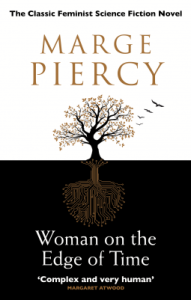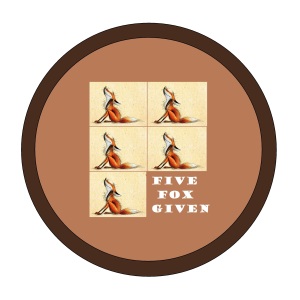
DESCRIPTION:
Please join us in celebrating this classic feminist dystopian novel - reissued on its 40th Anniversary with a new introduction by the author.
Hailed as a classic of speculative science fiction, Marge Piercy’s landmark novel is a transformative vision of two futures. Harrowing and prescient,Woman on the Edge of Time will speak to a new generation on whom these choices weigh more heavily than ever before.
Connie Ramos is a Mexican American woman living in New York. Once ambitious and proud, she has lost her child, her husband, her dignity - and now they want to take her sanity. After being unjustly committed to a mental institution, Connie is contacted by an envoy from the year 2137, who shows her a time of sexual and racial equality, environmental purity, and unprecedented self-actualisation. But Connie also bears witness to another potential outcome: a society of grotesque exploitation in which the barrier between person and commodity has finally been eroded. One will become our world. And Connie herself may strike the decisive blow...
REVIEW:
I'm neither pro-, nor against feminism. As a female I have never struggled to prove myself in a man's world, rather I had to struggle to shine in a world of exceptional people both intellectually and creatively. Therefore, it is only recently that I had began to develop an interest in feminism literature, I consider it a rather curious post-degree development. I am still not sure were it will take me, but that is an adventure I am eager to take.
Now for Woman at the Edge of Time: this work is a walking talking paradox. It paints the most pessimistic and destructive view of life, only to give birth to the phoenix of hope for the future. It expresses the personal in the political by exploring the body as a site of resistance. Piercy gives space in her work to women’s experiences and relationships, often, as in this novel, to queer women and women of colour - all outcasts, taboos and restrictions are explored in depth. What the author definitely deserves credit for is the masterfully used indirect language to establish moral strongholds. Not even once during the process of reading I felt preached at, instead I was left to guess and choose the path to follow by myself.
Piercy masterfully explores aspects of the egalitarian society, communal living, sexism and class and racism, in order to create a utopia which elaborates on contemporary political and scientific experiments in horizontal living/organising and computer technology. She even dealt with the issue of language development: I loved the language imagined 150 or so years into the future, how English evolved, done in a way that makes use of the vernacular of the 1960s and the 1970s; it’s adapted from that time. It doesn’t work that well in 2010 but it was splendidly constructed, and I enjoyed revisiting the time of three and a half decades ago.
In short, there is a lot more that deserves to be said about Woman on the Edge of Time, but I fear if I attempt to cover it all, I will have to present you with a massive volume of analysis, that wouldn't serve its purpose of a short review, but will indeed please the literature puff in me :) Without a doubt I will recommend this book to all my friends.


No comments:
Post a Comment